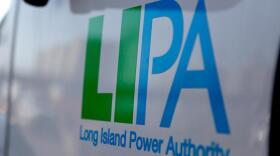Suffolk County lawmakers will look in the New Year into creating a digital platform to help town and village governments join and operate pacts to lower energy costs for consumers.
Community Choice Aggregation, known as CCA, allows for local governments to seek competitive bids for energy so consumers wouldn’t have to settle for the price set by a utility company.
Gordian Raacke, the executive director of Renewable Energy Long Island, said the CCA could also require all or some portion of electricity and gas to come from renewable sources.
“It goes beyond just supplying power. CCAs can purchase power from energy suppliers just like the utilities do today," Raacke said. "But CCAs could also run local energy efficiency programs and offer bulk purchase programs for solar panels and electric vehicles and things like that.”
Raacke was chair of a county committee that finished a report this month. It had recommendations for how town- and village-run CCA programs could prioritize clean energy to drive down costs, while contributing less to climate change. Only 5% of energy distributed in Suffolk County comes from renewable sources.
Under state law enacted in 2016, the county isn’t allowed to set up a CCA, but can offer direction to towns and villages. Only four Long Island towns already have CCA programs in the works: Southampton, East Hampton, Brookhaven and Hempstead.
Suffolk County Legislator Bridget Fleming sponsored legislation that formed the county task force to examine CCAs. She said the report will help inform New York regulators, who are expected to consider how to develop a competitive retail energy market on Long Island.
“It's really hard for entrepreneurs who want to introduce innovative ways of producing energy cleaner ways of producing energy to do well on Long Island. These companies don't see Long Island as attractive," Fleming said. "So that is one of the main next steps that we need to see.”
She said CCAs could give Long Islanders more control about where their energy comes — at time when the region's energy provider is possibly going through major changes.
The Long Island Power Authority is considering terminating its contract with PSEG Long Island over the utility company's poor response to Tropical Storm Isaias during the summer. LIPA, a quasi-public agency, could consider a fully public option, drawing a new contract with a different distributor, or going private. Most counties across the U.S., and in New York, have investor-owned utilities.
"Under the CCA model, because it is a community based approach to electric supply that requires an administrator that acts as the person, or the entity, that that procures the energy supply and then is responsible for getting it out to the community," Fleming said. "The hope is that there would be more accountability."



